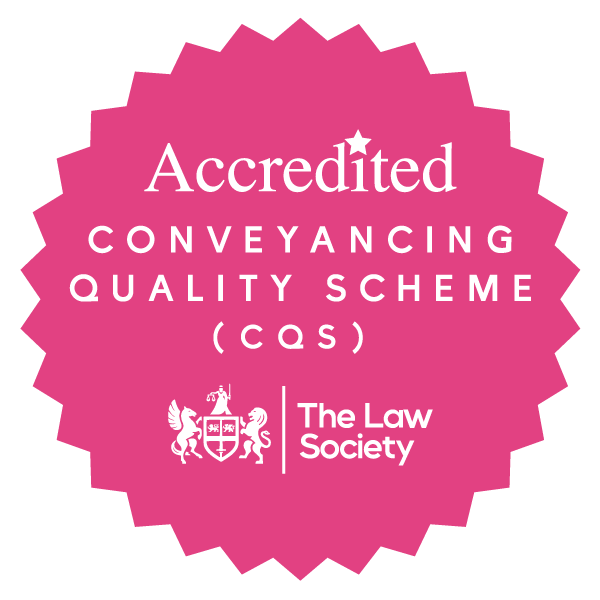Shareholders Agreement Solicitors and Partnership Solicitors in Enfield, North London and Hertfordshire
When you are involved in a business with other people it can be crucial to ensure you have discussed and recorded the terms so that you have the clarity and certainty that you will be treated fairly and in accordance with the terms of the agreement.
There are many fundamental matters to address, but a key objective of a partnership agreement or shareholders agreement, is setting out “the understanding” of the business plans both short and long term, to limit and avoid future grievances and disputes.
We have experience dealing with numerous different styles of shareholders and partnership agreement for businesses of different sizes and in different sectors.
What are the main issues covered by a shareholders agreement or partnership agreement?
The main issues covered by a shareholders agreement or partnership agreement are:
Ownership rules
i.e. can a party sell their shares to an outsider or must pre-emption provisions apply? Who is eligible to become an owner? Are all owners allowed to be involved in the operation of the business? If not, then what access to business information and papers will the owners be entitled to? Should there be provisions for admitting or expelling owners or left to a unanimous decision? What valuation mechanism should apply for an outgoing owner’s share?
Contribution rules
i.e. do partners need to contribute to the business (or other partners) whether cash or some other assets e.g. business connections or know-how? If so how much and how frequently? What if future contributions are not paid?
Drawing rules
i.e. are all partners entitled to draw from the business? If so how much and how often? Do partners have any employment relationship with the business? If there is an overdrawn account, does that need reimbursement? What happens if an overpaid account has not been repaid?
Non-compete provisions
i.e. should all owners be restricted from having an interest in other businesses which may be competitive? If an owner leaves the business should they be restricted from soliciting clients, poaching staff or interfering with suppliers?
Termination Events
i.e. what if an owner dies, becomes bankrupt, loses mental capacity, suffers a serious accident or illness, is no longer qualified to perform a day to day role or is struck off from a professional practice, is in breach of an agreement or something else meaning the other owners do not want that party involved in the business or the owner could not carry on being involved?
What is the difference between a shareholder agreement and a partnership agreement?
- The main difference between a shareholders agreement and a partnership agreement is a shareholders agreement is used where a business is operated through a limited company.
- However, there are three main forms of business structure, being the limited company (LTD), the limited liability partnership (LLP) and the general partnership. Any agreement between the owners of any of these entities will have a slightly different style of ownership agreement.
- A key similarity is the ownership agreement is a private agreement and not recorded on any public registry.
- There are different laws that apply between these three main business structures, especially around tax, liability and succession. Accordingly, it is important to ensure the right form of agreement is used.
How can you resolve inequality in contributions between partners?
- A feature of a shareholders agreement or partnership agreement should be to resolve what each party is intended to contribute to the business and how you deal with a situation where a party ceases to contribute or contributes less than the fair share.
- The position will vary significantly business to business. In a company, you can have an investor who will only provide a single cash contribution, for a share (which may or may not be diluted) of all future profits, plus a proportionate share of any capital if the business is sold. In a professional partnership, say a partnership of accountants, surveyors or lawyers, a partner may have to pay into the business for a fixed profit share, but only be able to continue to retain a profit for so long as they carry on working full time in the business. Where two or more people setup a business and it is not clear what contributions may be required, then it is possible to setup a vesting scheme so equity is allocated based on time and results achieved. Equally if a party leaves then shares may be reacquired back for redistribution.
How can you ensure a party who holds a small share of a business will be treated fairly?
- There are various techniques which can be adopted to protect parties who do not have a controlling interest in a business.
- The first exercise should be to understand what controls and protections would be reasonable to have with a small share of a business.
- For example, an employee shareholder in a small privately owned company, holding 5% of the equity, is unlikely to have much, if any, say in how the business is operated.
- But what about a shareholder who has contributed a reasonable sum for a reasonable share say for illustration purposes £250,000 for 25%? Holding 25% of a company would not prevent other parties holding the other 75% from passing a special resolution to liquidate the company.
- Accordingly a main expectation is the shareholders agreement will include various voting and decision making controls. The more important the decision, then the greater the level of protection. So a decision to enter into a major contract, admit a new partner or close the business may require a unanimous consent. Whereas a decision in relation to expenditure and employment within reasonable levels may be based on a majority vote at a properly called and quorate meeting.
- Holding 49% of a company may or may not provide suitable protection. If there is one other shareholder holding 51% then the other shareholder would have control of the board of directors. But if the remaining 51% of the shares are held by a group of disparate parties, then holding 49% may provide day to day control.
Deadlock businesses
Where you have equity held equally you have a deadlock businesses. This could be a two person company with 100 shares, with each party holding 50 shares. Equally you could four individuals holding 25 shares each or three individuals holding 33 shares (and say 99 shares in aggregate). Each structure should be examined to understand how the arrangements impacts voting, dividend and capital entitlements.
Minority shareholders oppressing majority shareholders
- Even if you hold a significant majority stake in a business, this does not guarantee fair treatment. For example in a two person business where the party holding 70% of the equity aged 70 cannot sell his share and therefore monetise his equity as his co-shareholder holding the other 30% and who is aged 50 does not to sell his share or buy out the partner.
- To protect against this situation, at the start of the venture, the majority shareholder should obtain a “drag right” from the minority shareholder, meaning an option to be to force a sale of the company.
What are the options if there is a dispute with my business partner?
- There are a number of options to resolve a business dispute. The first thing to note is that the response will depend on the nature of the dispute and your role and relationship in the business. Why has it arisen? Can it be resolved? If so, do you need outside help such as a mediator or independent accountant? Is it likely to happen again? Does it affect all parties or just you?
- Sometimes an initial period of cooling off can resolve matters. Often parties fall out of love, but get the relationship back on an even keel after some time.
- If time is not an option, the typical options fall around the following themes. First one partner leaves the business with a negotiated purchase. Second the business is sold. Third the business is closed. The agreement can include provisions for how disputes are to be resolved (including situations which are deadlocked but with no underlying dispute), alternatively it may be possible to petition the court for a judicial remedy to close the business or obtain some other remedy. On the basis a judicial route may be expensive, time consuming and uncertain, a properly considered partnership agreement or shareholders agreement should provide the clarity and certainty how to resolve without having to go to court.
Can you provide a standard agreement as our situation should be simple?
A clear and simple agreement is a given, although the nature of some forms of business structures and situations means complicated and nuanced provisions are necessary. The most important outcome is to have an agreement which works. Typically that requires a legal process to understand why you are involved in a business, what your outcomes are, and therefore what is appropriate to provide.
Contact our Commercial Lawyers in Enfield, Finchley, North London and Hertfordshire today
We are here to help whether you are starting a new business, or wish to consider your options in an existing business. Call us today or complete our online contact form and one of our team will be in touch to discuss your matter further.



















